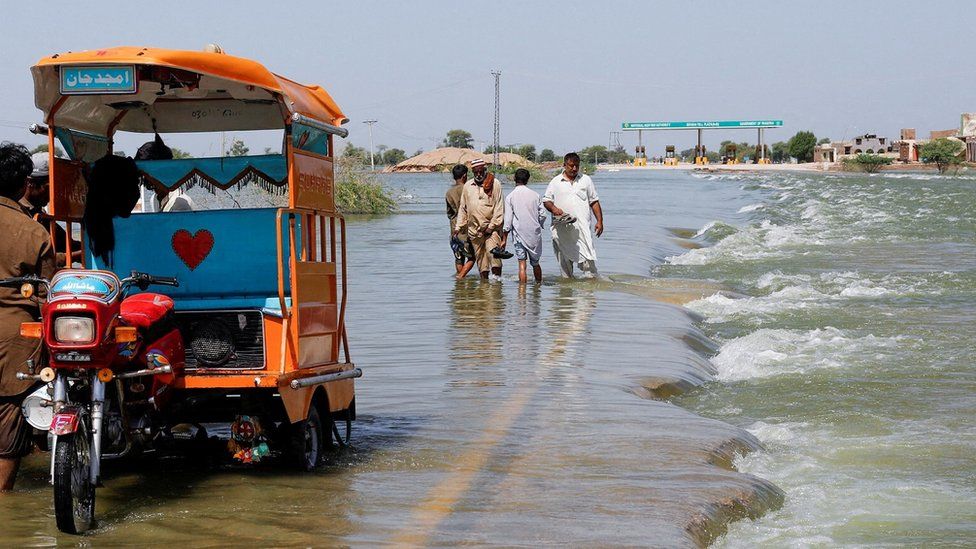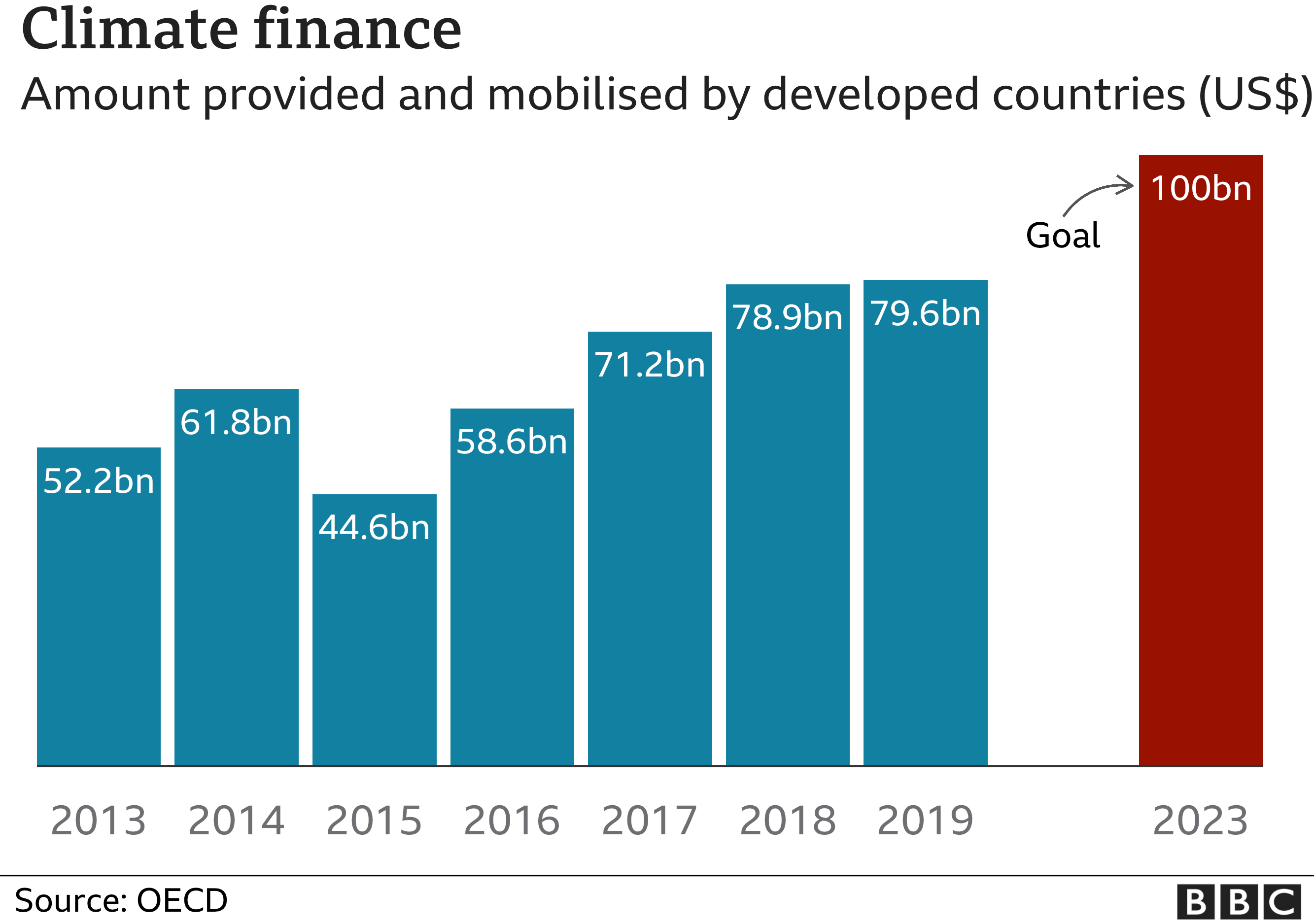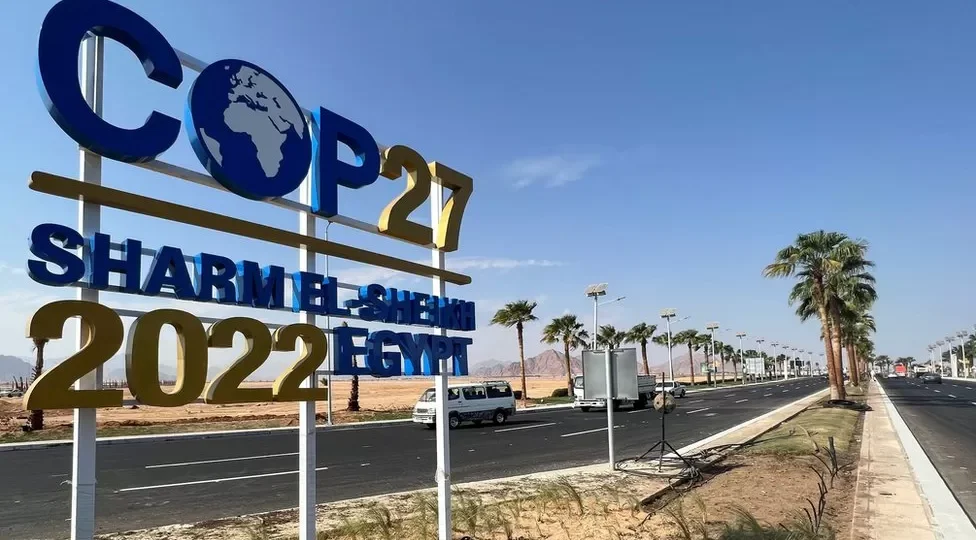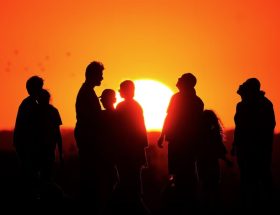World leaders are set to discuss action to tackle climate change, at the UN climate summit in Egypt.
It follows a year of climate-related disasters and broken temperature records.
What is the UN climate summit?
UN climate summits are held every year, for governments to agree steps to limit global temperature rises.
They are referred to as COPs, which stands for “Conference of the Parties”. The parties are the attending countries that signed up to the original UN climate agreement in 1992.
COP27 is the 27th annual UN meeting on climate. It will take place in Sharm el-Sheikh from 6 to 18 November.
Why are COP meetings needed?
The world is warming because of emissions produced by humans, mostly from burning fossil fuels like oil, gas and coal.
Global temperatures have risen 1.1C and are heading towards 1.5C, according to the UN’s climate scientists, the Intergovernmental Panel on Climate Change (IPCC).
If temperatures rise 1.7 to 1.8C above 1850s levels, the IPCC estimates that half the word’s population could be exposed to life-threatening heat and humidity.
To prevent this, 194 countries signed the Paris Agreement in 2015, pledging to “pursue efforts” to limit global temperature rises to 1.5C.

Who will be at COP27?
More than 200 governments are invited.
However, some leaders of major economies including Russian leader Vladimir Putin are not expected to attend. Delegates from the country are still expected.
Other countries, including China, have not confirmed whether their leaders will take part.
Hosts Egypt have called on countries to put their differences aside and “show leadership”.
Environmental charities, community groups, think tanks, businesses and faith groups will also take part.
Don’t backtrack on climate, Egypt tells Truss
Why is COP27 in Egypt?
This will be the fifth time a COP has been hosted in Africa.
The region’s governments hope it will draw attention to the severe impacts of climate change on the continent. The IPCC says Africa is one of the most vulnerable regions in the world.
Currently, 17 million people are estimated to be facing food insecurity in east Africa because of drought.
However, choosing Egypt as the venue has attracted controversy.
Some human rights and climate campaigners say the government has stopped them attending because they have criticised its rights record.
What will be discussed at COP27?
Ahead of the meeting, countries were asked to submit ambitious national climate plans. Only 25 have – so far.
COP27 will focus on three main areas:
- Reducing emissions
- Helping countries to prepare and deal with climate change
- Securing technical support and funding for developing countries for these activities
Some areas not fully resolved or covered at COP26 will be picked up:
- Loss and damage finance – money to help countries recover from the effects of climate change, rather than just prepare for it
- Establishment of a global carbon market – to price the effects of emissions into products and services globally
- Strengthen the commitments to reduce coal use
There will also be themed days for focused talks and announcements on issues including gender, agriculture and biodiversity.
Do we expect any sticking points?
Finance has been long been an issue at climate talks.
In 2009, developed countries committed to give $100 billion a year, by 2020, to developing countries to help them reduce emissions and prepare for climate change.
The target was missed and moved back to 2023.

But developing nations are also calling for payments for “loss and damage” – the impacts faced now.
An option for making payments was excluded from the Bonn climate talks, after pushback from wealthier nations who feared they would be forced to pay compensation for decades.
The EU agreed discussions should take place at COP27.
You will hear a lot of jargon:
- Paris accord: The Paris Agreement united all the world’s nations – for the first time – in a single agreement on tackling global warming and cutting greenhouse-gas emissions
- IPCC: The Intergovernmental Panel on Climate Change examines the latest research into climate change
- 1.5C: Keeping the rise in global average temperature below 1.5C – compared with pre-industrial times – will avoid the worst impacts of climate change, scientists say
How will we know if it has been successful?
It depends who you speak to.
Developing countries, as a minimum, will want loss and damage finance to be an agenda item. They will also be pushing to have a date set for when they might start to receive payments.
Developed nations will be looking for more commitment from large developing countries – such as China, India, Brazil, Indonesia and South Africa – to move away from coal, the dirtiest of the fossil fuels.
There are also pledges from last year – on forests, coal, and methane – that more countries may sign up to.
However, some scientists believe world leaders have left it too late and no matter what is agreed at COP27, 1.5C will not be achieved.
Original Article: BBC News Climate and Science By Esme Stallard










